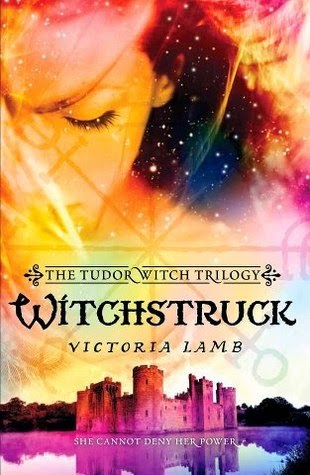If she sink, she be no witch and shall be drowned.
If she float, she be a witch and must be hanged.
Meg Lytton has always known she is different—that she bears a dark and powerful gift. But in 1554 England, in service at Woodstock Palace to the banished Tudor princess Elizabeth, it has never been more dangerous to practise witchcraft. Meg knows she must guard her secret carefully from the many suspicious eyes watching over the princess and her companions. One wrong move could mean her life, and the life of Elizabeth, rightful heir to the English throne.
With witchfinder Marcus Dent determined to have Meg's hand in marriage, and Meg's own family conspiring against the English queen, there isn't a single person Meg can trust. Certainly not the enigmatic young Spanish priest Alejandro de Castillo, despite her undeniable feelings. But when all the world turns against her, Meg must open her heart to a dangerous choice.
The Secret Circle meets The Other Boleyn Girl in Witchstruck, the first book of the magical Tudor Witch trilogy.
Published September 24th 2013 by Harlequin Teen
(info grabbed from GoodReads)
"Oh, d-d-dear."
-Piglet
This chick needs to take a lesson
from Piglet from Pooh Corner. That quote would be an appropriate reaction
to being a witch in Tudor times. Seriously. We need to go back in
time and into this fantasy land to get this girl some Winnie the Pooh.
Witchstruck is about a young witch, Meg, and her escapades in
witchcraft while being bestie to the future Queen Elizabeth. There is also a Spanish priest that makes Meg’s
heart pitter-patter. There’s the plot of
Protestants trying to overthrow the Catholics that really felt more like a sub
plot thrown in there too. But really,
this book is about one thing: stupidity.
Meg is somewhat interesting in the sense that she is not what I'd expect of a girl from this time period. She isn't quiet, timid, or any other of those supposed girlish traits that were more admired in those days; she is stubborn and slow witted. She also does not know what fear is, in a bad way. You could say she doesn't let fear stop her from using her craft -- she doesn’t. I would say that she has an inability to think things through and likes to show off her power. She consistently picks bad times and places to practice witchcraft with little reason to her actions. The reasons she continues practicing witchcraft are never established that solidly; she does it because she can for all I can tell. It doesn’t really help predict anything or have any benefit. It comes off as pointless and exercising “power” just because. She is rash… and I guess that could be interesting to someone. There is little to no reason behind what she does why she does it, but everything ends up magically working in her favor.
The romance has very little purpose
in the story and makes no sense, which is why I would recommend Witchstruck to
people who get less hung up about facts. A catholic priest and a
witch? And he knows she is a witch? And no explanation to the
priest's motives and blind trust on both sides? Let's get real. The
backstory on the priest didn't explain why he is okay with Meg being a witch;
it actually was fuel to hate witches. But he doesn't. He isn't so
much as flustered by it. He is Sexy-Spanish-Priest-in-Training-Man here
to save the day and make sexy glances. Not really a defined personality
or capable of conversation as far as I can tell -- just sexy sex sex.
I liked Meg's relationship with
Elizabeth, but I don't understand why the future queen is sticking her neck out
(quite literally) for Meg. People are constantly helping Meg, but there
isn't a lot of reason written into the pages.
Meg has an extraordinary ability to get herself into trouble, but also
is exceptionally lucky. She makes irrational decision after irrational
decision and somehow doesn’t die. If I
was the future Queen is such a predicament as Elizabeth (her sister is looking
for an excuse to kill her), I would drop Meg like she was hot. But that’s me.
WitchStruck gets a big ol' resounding "Meh."
Final Thought: 1 out of 10
toadstools
This review is also posted on GoodReads





